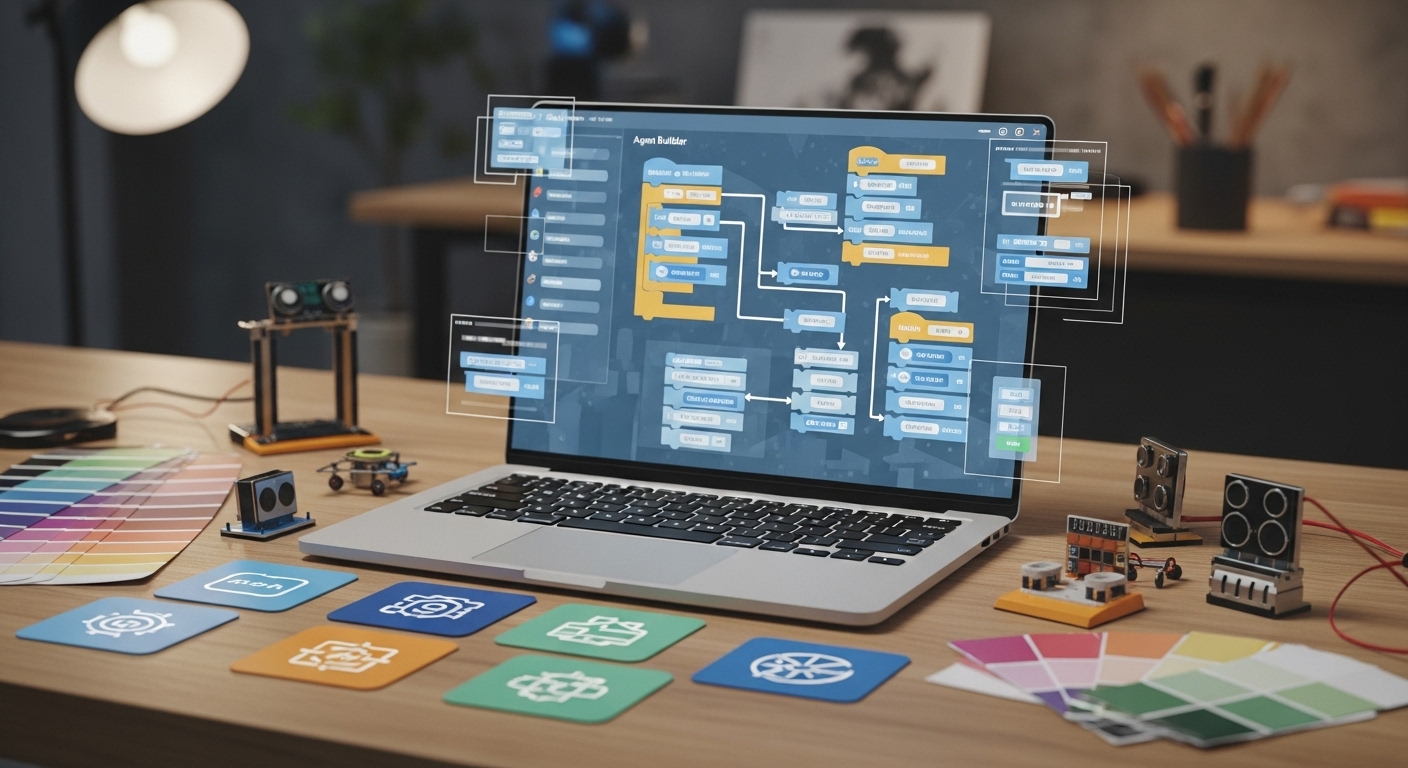
Artificial Intelligence (AI) is no longer just the domain of tech giants; we’ve entered an era where anyone can create their own AI tools. The key to this transformation? Agent Builder platforms.
What Is an Agent Builder?
An Agent Builder is a tool that allows users, even without technical expertise, to design and train their own AI agents. These platforms enable the creation of:
- Personal Assistants: AI agents that organize daily tasks and set reminders.
- Custom Chatbots: Bots tailored for customer service or support.
- Automated Content Creators: Systems that generate blog posts, social media content, and more.
Recent Developments and Examples
Recently, major tech companies have been investing in Agent Builder platforms. For instance, Salesforce developed the Agentforce 360 platform in collaboration with OpenAI and Anthropic. This platform allows users to create AI agents that can interact with tools like Tableau and Salesforce directly through ChatGPT.
Additionally, Anthropic introduced a feature called “Skills” for its AI assistant Claude, enabling users to create custom commands for specific tasks, making the assistant more efficient and task-oriented.
How to Build Your Own AI Agent
To create your own AI agent using Agent Builder platforms, follow these steps:
- Choose a Platform: Select a platform that suits your needs. Tools like Microsoft Copilot Studio or OpenAI AgentKit are known for their user-friendly interfaces.
- Define Objectives: Determine the tasks your agent will perform, such as email responses, data analysis, or customer support.
- Train and Test: After building your agent, test it with various scenarios to assess its performance.
- Integrate: Connect your agent with existing systems to enable it to perform real-world tasks.
Technical Details
Several core technologies power Agent Builder platforms:
- Natural Language Processing (NLP): Enables AI to understand and respond to human language.
- Machine Learning (ML): Allows learning from data and making predictions.
- API and Integration: AI agents can communicate with other software and data sources.
- Cloud Infrastructure: Supports large-scale data and model operations, enhancing scalability.
Users can leverage these technologies through visual interfaces, creating AI agents even with limited coding knowledge.
Looking Ahead: The Evolution of AI Agents
In the future, Agent Builder platforms are expected to evolve, allowing users to create more complex and integrated AI agents. This advancement will enhance business efficiency and enable individuals to incorporate more automation into their daily lives.
